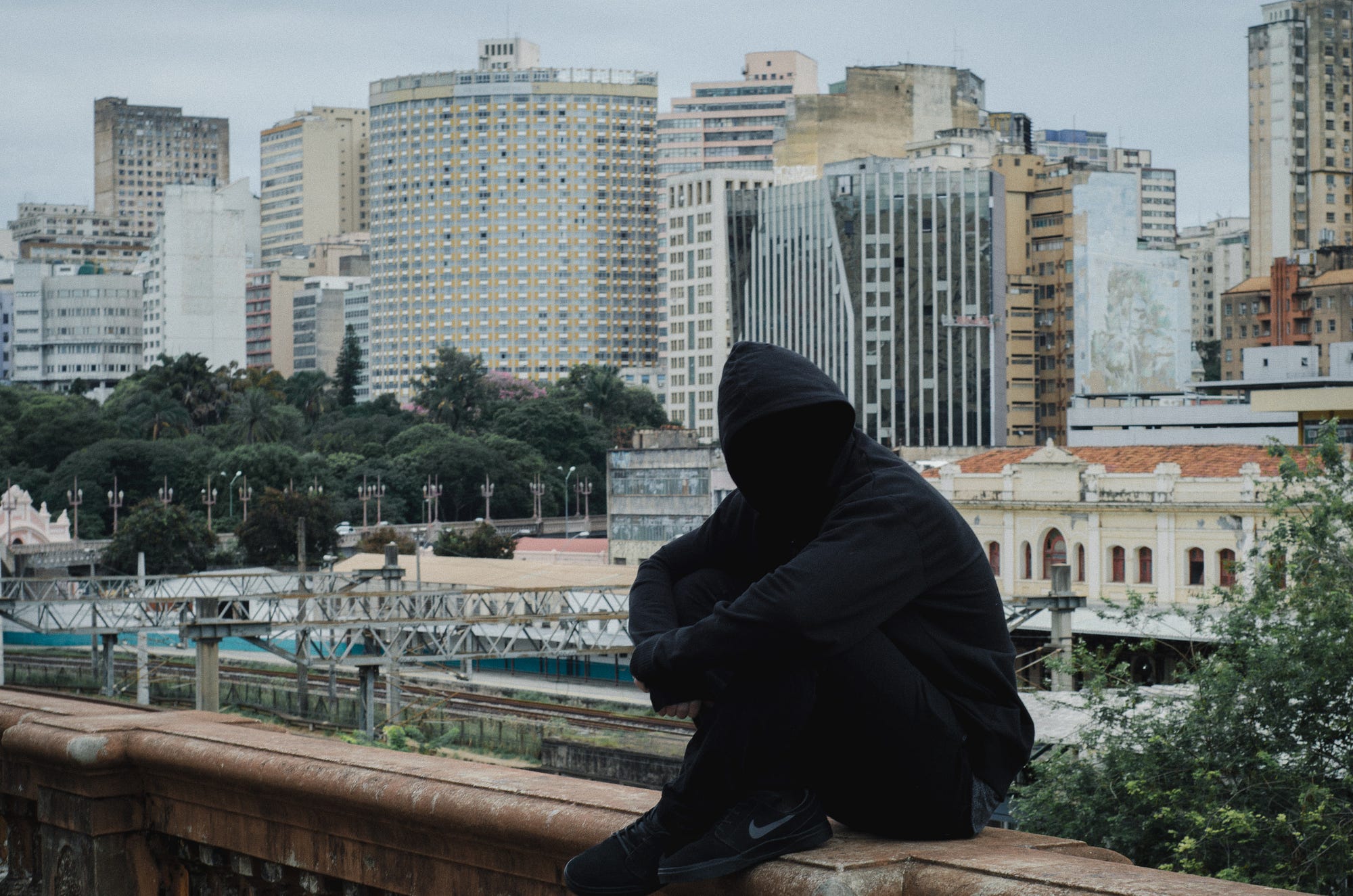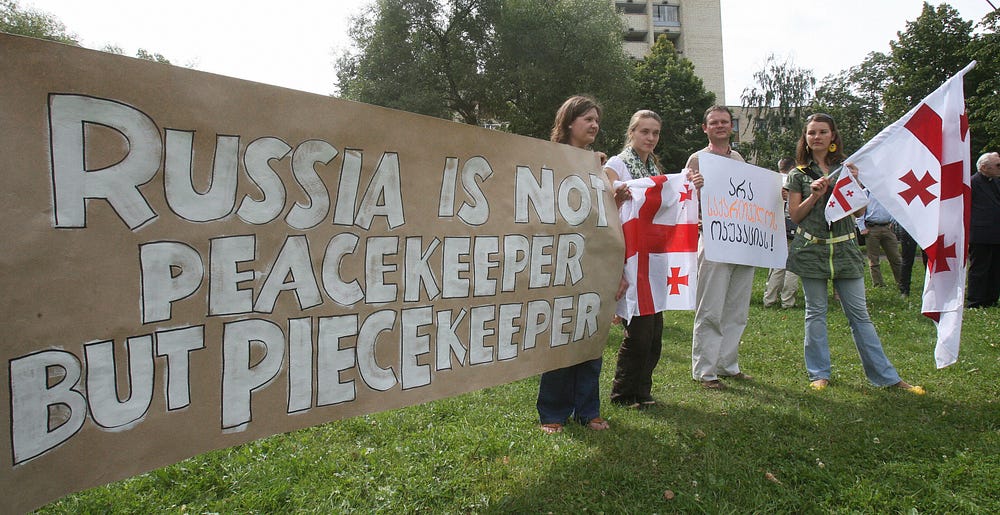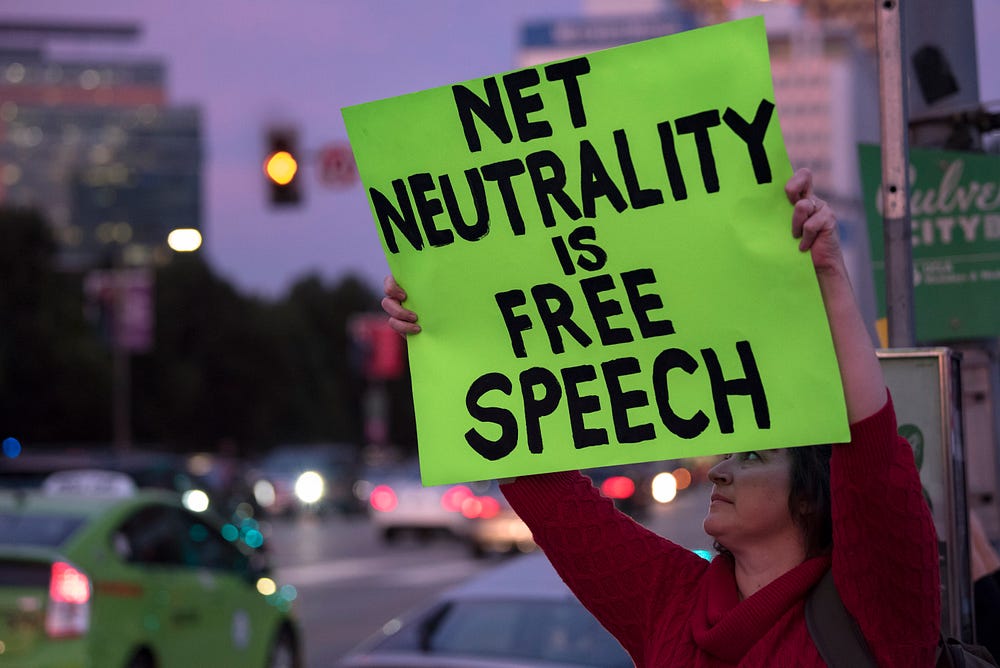What Victory Looks Like – Tobias Stone – Medium
The Great Cyber War: Part 4 (The Finale)

What Is Victory?
One reason the Great Cyber War is hard to understand is that victory in the eyes of the aggressors is not some final outcome where one side wins and the other capitulates. Whereas Hitler wanted to take over the world, Putin and the billionaires just want to create and perpetuate chaos.
Putin and his kleptocratic oligarchy are threatened by open, democratic countries succeeding. The narrative that keeps Putin in power is that democracy doesn’t work and countries that turn away from Russia fall into chaos. The comparison between Belarus and Estonia, both of which broke from Russia at the end of the Soviet era, makes that point clear. Putin’s narrative is undermined by Estonia doing so well, that its people are wealthier, living longer, and generally happier than in Russia. This is why he crushed the first flowers of freedom in Georgia, which was on track to join NATO, and of Ukraine when it, too, threatened to choose Europe and NATO instead of Russia. Putin needs these countries to fail, and to justify his authoritarianism, he needs his people to believe that the EU and American liberal democracy are failing. Equally, he needs authoritarian regimes, like Turkey and Syria, to succeed.
Victory in this war is fragmentation and chaos. Victory is Catalonia trying to leave Spain, the UK leaving the EU, Scotland maybe leaving the UK, the rise of right-wing parties winning seats in European parliaments. Hungary and Poland returning to authoritarianism, reviving nationalist and racist religious-backed dogma that puts them at odds with the EU, is a victory and is an outcome of the Great Cyber War. Victory in this war sees the EU weaken, the trans-Atlantic alliance in tatters, NATO divided and unable to react to Russia, and sanctions against Russia dropped by weakened European and trans-Atlantic alliances. Victory is an ongoing refugee crisis and clampdowns on free speech and on freedom of the press.
Disunited, we are less able to regulate industries, protect the environment, and protect individual people. With less cooperation, it is harder for the ideologies that arose in the West out of the ashes of World War II to be defended; it is harder to oppose corruption, gangsterism, and kleptocracy and defend what we like to call “freedom.” It leaves Russia free to take back bits of its old empire, like it did with Crimea, and to strengthen its position in the Middle East and Asia in place of a weakened United States, NATO, and EU. It allows right-wing consolidation of the U.S. media and more money to be made from industries that destroy the planet.
And the ground troops in this war, the fifth columns, don’t even realize they are part of this battle. The right-wing American pundits, including Trump himself, sharing fake stories and memes produced in St. Petersburg, are the unwitting foot soldiers of Putin’s war on order. The nationalist politicians, like Marine Le Pen and Viktor Orban, who fund their campaigns with Russian money, are his unwitting fifth columnists, as are the people who churn out stupid lies and made-up statistics, fake stories, and fabricated numbers that Russia Today, fake Facebook groups, and Russian Twitter-bots churn out to audiences targeted by Cambridge Analytica.
The Great Cyber War has us all fighting each other. While we are all enraged by scandals and arguing about leaked emails, disgraced film producers, and Silicon Valley CEOs, we forget that Russian-backed militants, armed with a Russian missile, shot down a passenger airliner in Europe.

We need to wake up and smell the vodka. This has been going on for a decade (here is a list of Russia cyberattacks against other nations over 10 years, if you are still doubting this). We need to be become a lot more suspicious and questioning. The people making sense of this are a few journalists and academics, who have the time, intellect, and motivation to create massive, complex maps of what is happening. They become so alarmed that when they write up their findings they sound like conspiracy theorists and either get ignored or worse—their writings are just too challenging to be read in this age of tweets and rapid-fire news snippets.
Instead of people like Carole Cadwalladr and Jonathan Albright dominating our headlines, as they should, their work gets into the press for the most dedicated of readers, and then disappears under the morass of celebrity gossip and political scandals that are forming an increasingly thick smoke screen over what is really happening.
Those people who argue that this is all nonsense, all the voices of whining liberals who lost, that this is the death rattle of an elitist conspiracy, that this is a return of power to “the people,” and “the will of the people,” should ask where they got those ideas from. They are the core ideas of the Great Cyber War. They are weaponized propaganda.
If you take on board what has happened so far and look at this broad, complex web of events, admissions, actions, and actual facts, and then assume that anything involving a major scandal, the breakdown of nations or unions, the rise of nationalism, deregulation, challenging political authority, is a connected strategy fed by Russia and Robert Mercer, then you see how the world looks. That is the victory they are fighting for.

Why Is This Happening Now?
This isn’t really about politics or ideology. Putin’s Russia is ultimately driven by greed. It is a kleptocratic oligarchy whose sole purpose is to remain in power, siphon off wealth, and avoid being challenged. Putin needs a weak Europe and weak Atlantic alliance to get sanctions lifted and to give him freedom to carry on whatever foreign adventures he needs to distract his people from the growing disintegration of the country under his kleptocracy.

The Western Front of Robert Mercer and the billionaires around Trump is much the same. They want a world where they can make and keep money unopposed. Both want to weaken the rule of law, remove regulation, and weaken the governance of the West, which in effect opposes them both. Climate regulation, anti-corruption laws, democracy, in which “their people” can be removed, are all threats to them. Elections that can be fixed, gerrymandering, deregulation, and weak international organizations create a world in which they can thrive.
Mark Kennedy sums up this reality in Foreign Policy:
Putin’s goals on the European chess board are to retain popular support at home and to avoid outside interference, so that he and his cronies can line their pockets with Russia’s wealth. His strategies to that end include convincing his own people that the West is out to get them, fragmenting and distracting Europe, dividing the United States and Europe, and causing enough Middle East turmoil to keep the price of oil high.
An example of where such deregulation by Trump could have a frightening and irreversible impact on U.S. democracy is in the activity of the FCC, which regulates broadcasting in the United States. Ajit Pai, a Trump-supported Republican, was promoted to chairman of the commission by Trump. This investigative piece in Mother Jones shows how the FCC, under Trump’s man, is now deregulating television to allow a major right-wing broadcaster, Sinclair Broadcast Group, to dominate the airwaves.
Under the leadership of Ajit Pai…the FCC has seemingly gone out of its way to grease the wheels for the Sinclair-Tribune merger, reinstating a rule from the Reagan era that could help the company avoid limits on media consolidation. “The FCC is gaming the rules to directly benefit Sinclair,” says Craig Aaron, the president of the public interest group Free Press. If the merger is approved, Sinclair’s broadcasts will reach 72 percent of all households.
Such a consolidation of the media by a single broadcaster, which is televising programs described as “the nearest I’ve seen to propaganda on American television,” and which is both backed by and backing Donald Trump, would have a direct impact on the ability of anyone, be it the Democrats or, indeed, the Republicans, to defeat Trump in the 2020 election. Such an outcome would effectively trap the United States in authoritarianism. Once opposition parties and politicians cannot make their voices heard over the message of the incumbent leader, democracy cannot function.
Combine that little-known story with the FCC’s attempt to end net neutrality, and we face an America where a Republican Fox TV viewer ends up only ever seeing right-wing commentary on TV and, in subscribing to an internet provider that favors Fox, finds any liberal online media not included in their web package. At that point, opposing views are completely stifled, and whoever is in power and controls the FCC can start to suppress the voice of the opposition. That is the end of democracy and a familiar pattern in today’s autocracies and dictatorships.

This is happening through deregulation, which in turn allows market consolidation by people who will owe their newly increased wealth directly to the Presidency of Donald Trump. Very rapidly this turns America into modern-day Russia, where everyone owes their wealth to the leadership, which in turn has the power to maintain, increase, or remove that wealth through the very systems those oligarchs helped build and maintain. If Trump-backed deregulation allows Trump supporters to grow rich, it also means their wealth can be removed again by the same powers that created it, cementing Trump in a position where those in power cannot risk removing him from power, and those who try will find that new regulation suddenly stops them. This already happens in Russia, China, and other authoritarian states.
If we piece together the evidence, it is becoming clear that a lot of what we think is normal, and a lot of events we think just happened, were in fact coordinated and influenced. The links that the Robert Mueller investigation and that journalists like Carole Cadwalladr are gradually unearthing show a web of connections between Mercer, Cambridge Analytica, Brexit, Farage, Bannon, Trump, Russia, and Putin.
This is a battle of world orders. The system of governance that grew out of the Second World War — the United Nations, EU, NATO; democracies, openness, and freedom — is one of alliance, cooperation, internationalism, globalism, and prosperity. To some extent (by comparison to other orders) it has ensured that wealth has trickled down and across societies, ensuring that people have an overall higher standard of living, quality of life, and life expectancy than ever before. I stress that this is by comparison. You may jump to point out the dreadful inequalities in our societies, the poverty, and the failures of our states, and I would agree. But these pale in comparison against countries that are not open and free. Compare life expectancy in Germany (81) with Russia (70). When judged on the basics of life expectancy and real poverty, the postwar democracies have done a better job than the autocracies and dictatorships.
During this postwar, Western order exists by giving power to the people, by allowing them to remove politicians who are corrupt or incompetent, to empower and incentivize politicians to regulate in a way that protects the many at the expense of the few. Think back to the days when smoking was not regulated, and owners of tobacco companies made a fortune. Think about when companies could pollute the air without restraint. So, it is this world—in which wealth generation is moderated at least to be within the confines of not directly killing people—that threatens kleptocrats and oligarchs.
We live in a world where there is some attempt to police the powerful and to protect people. Of course, the UN, EU, NATO, and other postwar institutions are appallingly flawed, but at least they exist. Imagine if there was no UNHCR at least to try to protect refugees; imagine if there was no NATO at least to try to repel aggression against Atlanticism. However much you may justifiably criticize the EU, imagine if it didn’t exist at all. These postwar constructs that promote cooperation, justice, and human rights are far better than the alternative, however stupidly they are run.
But this world order is a huge threat to the likes of Putin and Mercer. For Putin and his oligarchy, cooperation like the EU and NATO allow smaller countries to resist their regional ambitions. They enable coordinated punishments, like sanctions, which would be very hard to achieve in a world of disunited countries. This unity means that when Russia shoots down a passenger plane over Ukraine, it has to contend with a united response from the whole of Europe (admittedly a weak and slow one, but still better than nothing). When Russia engages in propaganda warfare against the United States, it is met with united sanctions from America and Europe, as well as public investigations.
The same applies to the Mercers of this world—billionaires who want to make, keep, and spend money uninhibited. For them, in recent years, greater cooperation has made it harder to hide money offshore and move it around the world illicitly. Greater regulation, especially around climate change, has challenged their business models, reducing their incomes. This is why they support Trump, who is undermining efforts to curb climate change and removing regulation in his country that was designed to protect the people. Trump has failed to fill positions in government, effectively creating a smaller, weaker, less-effective government, less able to regulate and police industries. The United States is already shifting from the world order where the people are protected to one more like Russia, where the minority oligarchy is protected at the expense of the people.
The Great Cyber War we are in the midst of is a war against this world order. It is a war against things we not only take for granted but also openly criticize and even hate; this open criticism is proof of their success. We have the freedom to complain, and we live in an era of unparalleled peace, prosperity, and health, so much so that we’ve forgotten what it could be like if we didn’t.
This battle is about the world borne out of the horrors of the mid-20th century. Do we want to continue living in a world where we can disagree openly, challenge our politicians, and remove them from office without violence? Do we want to live in a world where even the most disadvantaged in society receive at least very basic care, and where the sick are always given at least basic treatment? Do we want to look to a future where our children are as free as we are, and where the planet they live on has not been destroyed by the short-term money-driven industries of our generation? Our children or grandchildren may challenge us and the politicians of their time about why we let the climate collapse, but what if they live in a world where they are not allowed to speak out and challenge anyone?
I would not call the present a perfect utopia, but we are being confronted by forces who want our future to be a total dystopia.
This is the Great Cyber War.
Wake up.

